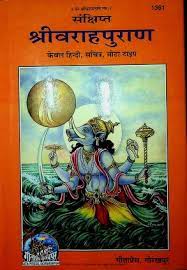Authors: Various
Understanding the history of Indian philosophy is important for several reasons. It provides insights into the rich intellectual and cultural heritage of India, offers diverse perspectives on fundamental questions of existence, and highlights the interconnectedness of global philosophical traditions. Here are some key reasons why studying the history of Indian philosophy is valuable:
1. Intellectual and Cultural Heritage
- Rich Tradition: Indian philosophy boasts a diverse and ancient tradition that has shaped the intellectual landscape of not only India but also the world. Knowing its history allows us to appreciate the depth and breadth of Indian thought.
- Cultural Identity: Philosophy is a crucial part of India’s cultural identity. Understanding this history helps in comprehending the cultural and spiritual values that underpin Indian society.
2. Diverse Perspectives
- Pluralism: Indian philosophy encompasses a wide range of schools and systems, from materialistic and atheistic philosophies like Charvaka to deeply spiritual and metaphysical systems like Vedanta. This diversity encourages open-mindedness and a comprehensive understanding of different worldviews.
- Comparative Philosophy: Studying Indian philosophy allows for fruitful comparisons with other philosophical traditions, such as Western, Chinese, and Islamic philosophies, fostering a global and inclusive perspective on philosophical inquiry.
3. Fundamental Questions
- Existential Inquiry: Indian philosophy tackles fundamental questions about the nature of reality (metaphysics), the self (Atman), knowledge (epistemology), ethics (dharma), and the ultimate goal of life (moksha). These inquiries are universal and relevant to all human beings.
- Practical Wisdom: Many Indian philosophical systems offer practical guidance on how to live a meaningful and ethical life. The emphasis on self-discipline, mindfulness, and compassion in schools like Yoga and Buddhism has widespread relevance.
4. Influence on Global Thought
- Cross-Cultural Impact: Indian philosophy has significantly influenced global thought. Concepts such as karma, dharma, yoga, and meditation have permeated various cultures and philosophical discussions worldwide.
- Intellectual Exchange: The history of Indian philosophy includes interactions with other traditions, such as Greek, Persian, and later Western philosophies, demonstrating a long history of intellectual exchange and mutual influence.
5. Spiritual and Ethical Insights
- Holistic Approach: Indian philosophy often integrates spiritual and ethical dimensions, offering a holistic approach to understanding human life and the universe. This integration is valuable for addressing contemporary issues related to well-being, ethics, and environmental sustainability.
- Guidance for Modern Life: The teachings of Indian philosophy provide timeless wisdom that can be applied to modern challenges, such as stress, mental health, social justice, and environmental crises. Philosophies like Vedanta, Buddhism, and Jainism offer frameworks for personal and collective transformation.
6. Academic and Scholarly Significance
- Research and Scholarship: Indian philosophy is a rich field of academic study, offering ample opportunities for research and scholarship. It contributes to a broader understanding of philosophy as a discipline.
- Interdisciplinary Relevance: The concepts and methods of Indian philosophy are relevant to various academic disciplines, including religious studies, anthropology, psychology, and cognitive science. This interdisciplinary relevance enhances its scholarly importance.
7. Enhancing Global Understanding
- Promoting Dialogue: Knowledge of Indian philosophy promotes dialogue and understanding between different cultural and philosophical traditions, fostering a more inclusive and harmonious global community.
- Educational Enrichment: Including the history of Indian philosophy in educational curricula enriches students’ understanding of global intellectual history and encourages critical thinking about diverse philosophical issues.
Conclusion
Understanding the history of Indian philosophy is essential for appreciating its profound contributions to global thought, gaining diverse perspectives on fundamental questions, and applying timeless wisdom to contemporary challenges. It enriches our intellectual, cultural, and spiritual lives, promoting a deeper understanding of the human condition and the pursuit of knowledge, ethics, and well-being.






